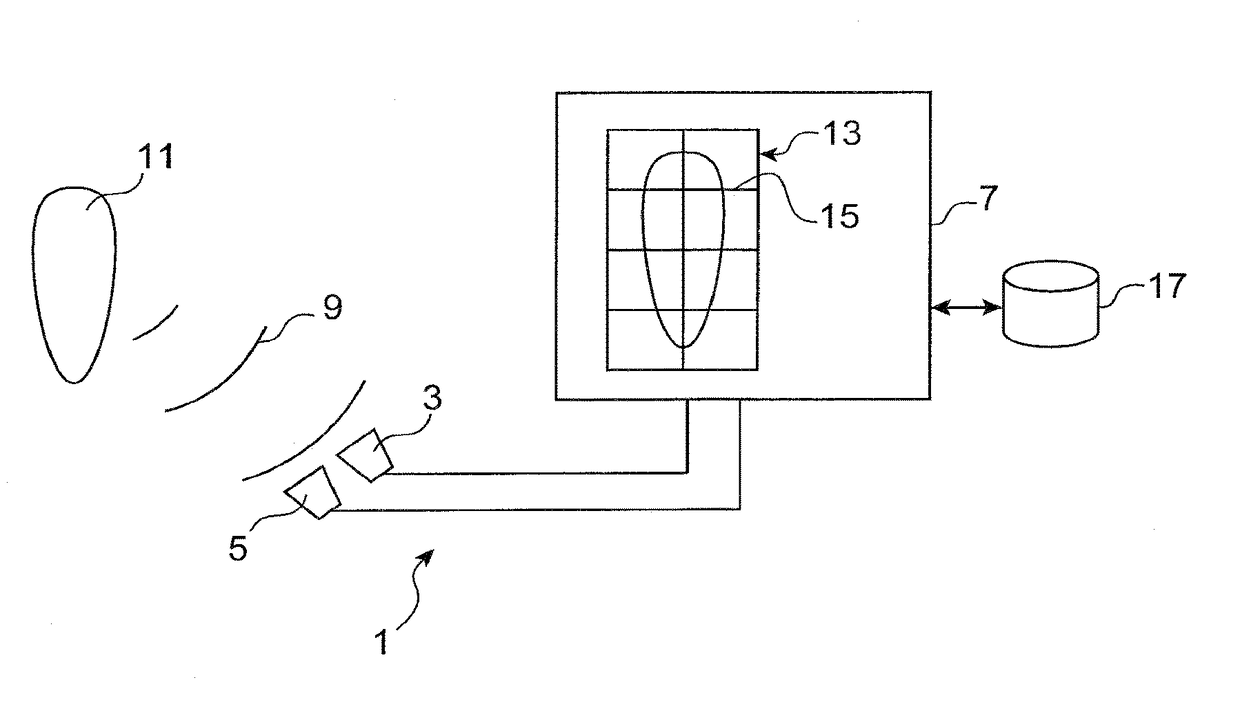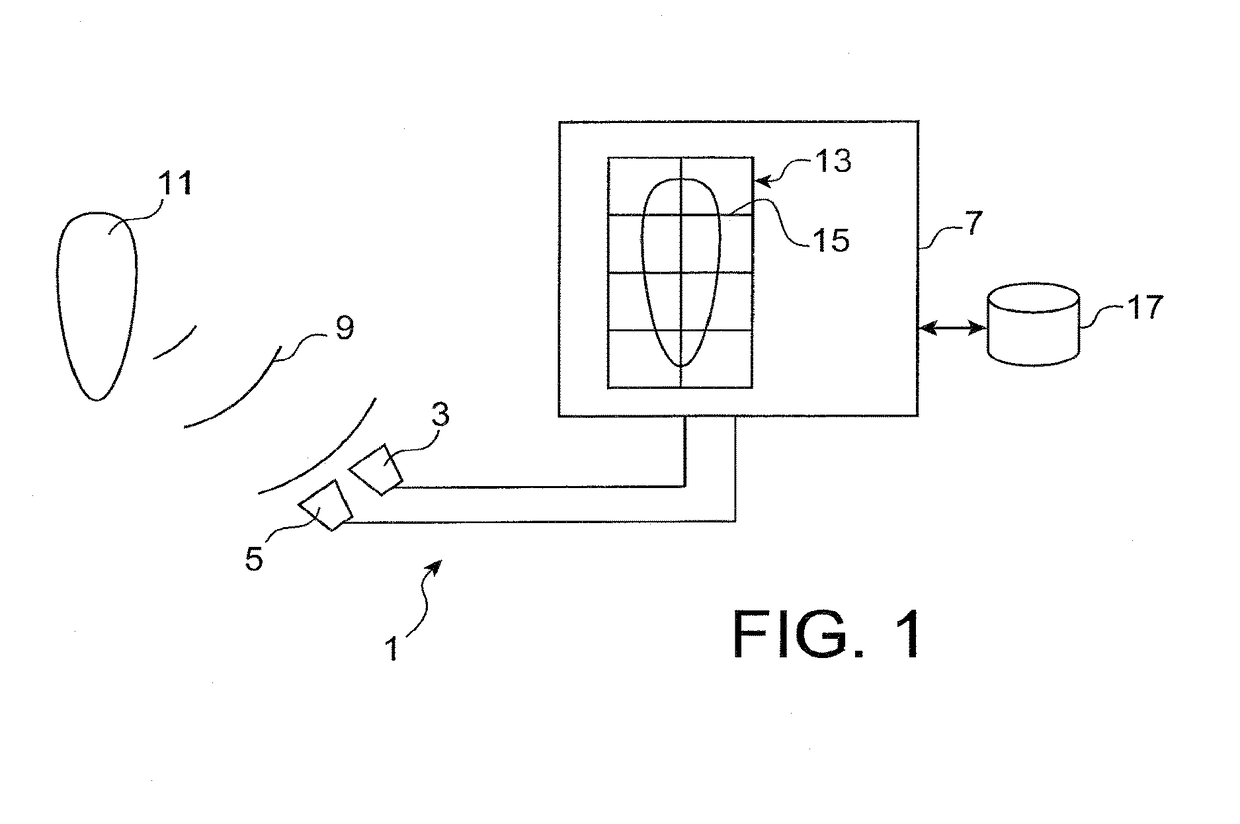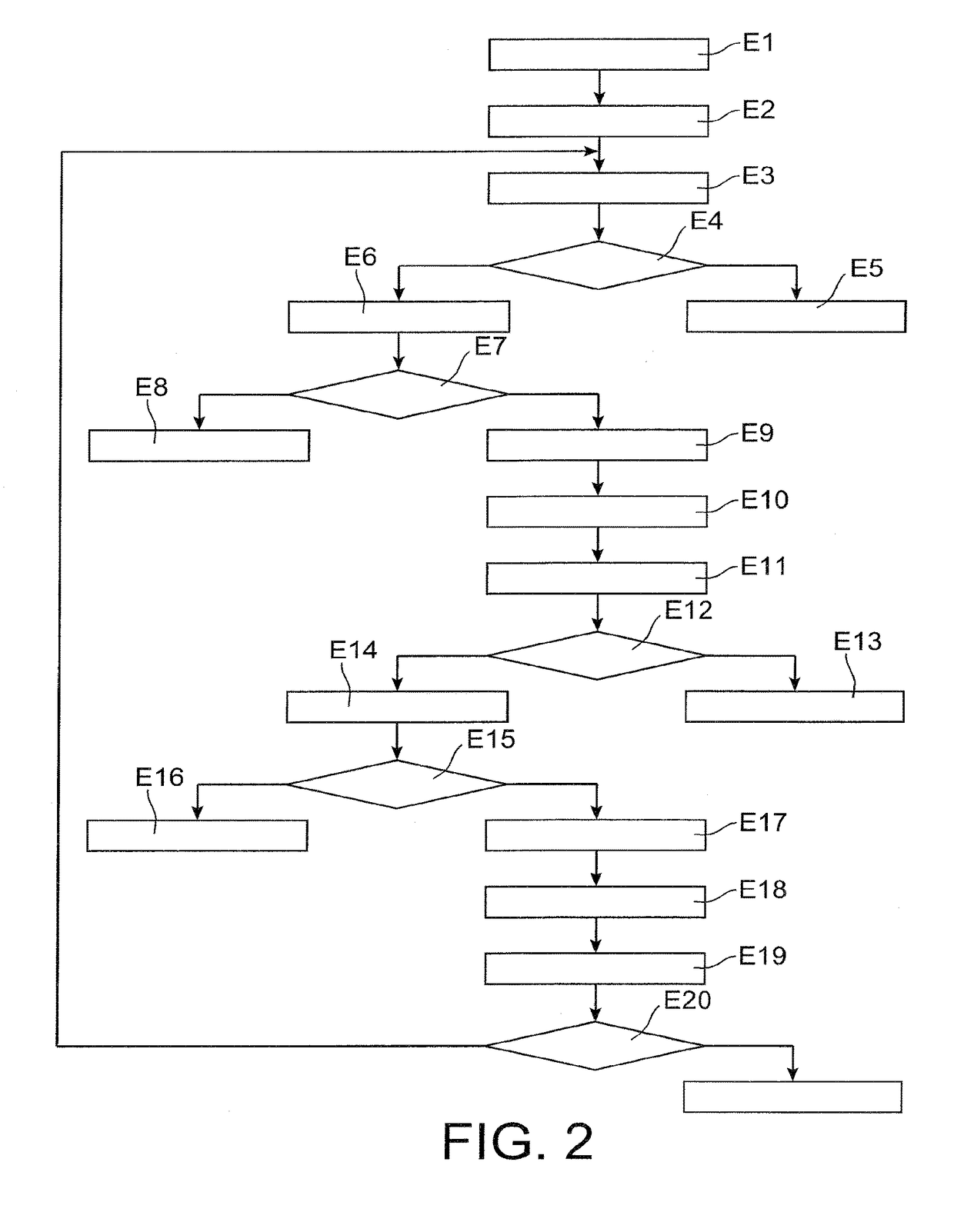System for detecting defects on an object
a technology for defects and objects, applied in the field of detecting defects on objects, can solve problems such as difficulty in knowing what grain to adop
- Summary
- Abstract
- Description
- Claims
- Application Information
AI Technical Summary
Benefits of technology
Problems solved by technology
Method used
Image
Examples
first embodiment
[0125]FIG. 5 is a detection algorithm according to the invention comprising a confirmation phase according to a
[0126]The confirmation phase comprises a comparison of the differentials relating to an abnormal subdivision belonging to a last image with differentials relating to the same abnormal subdivision belonging to each of a given number of previous images of the object, the data on the previous abnormal subdivisions being recorded in a database 17 associated with the processing means.
[0127]Step E21 concerns the measurement or acquisition of a physical parameter (e.g. optical, thermal or audible field) relating to the object 11, making it possible to form an image 13 of the object 11.
[0128]At step E22, the data related to the physical parameter are sent to the processing means 7.
[0129]At step E23, the processing means 7 are configured so as to process the data in accordance with the flow diagram in FIG. 2.
[0130]In particular, at steps E4 and E12 (FIG. 2), it is checked whether th...
second embodiment
[0138]FIG. 6 is a detection algorithm according to the invention comprising a confirmation phase according to a
[0139]The steps of the algorithm of FIG. 6 are identical to those of FIG. 5 except for steps E32 and E33.
[0140]As before, step E31 concerns the measurement or acquisition of a physical parameter (e.g. optical, thermal or audible field) relating to the object 11 enabling an image 13 of the object to be formed. If the data correspond to a first image, then step E32 is passed to, and otherwise to step E33.
[0141]Step E32 is a learning phase during which a learning database is constructed by comparing the differentials of the subdivisions of the first image of a sound object. This may be done according to the steps of comparisons between adjacent subdivisions in the flow diagram in FIG. 2.
[0142]Thus, at step E32, a learning database recording sound differentials between various subdivisions of the original sound image are constructed, knowing that the latter is not necessarily u...
PUM
| Property | Measurement | Unit |
|---|---|---|
| current differentials | aaaaa | aaaaa |
| second current | aaaaa | aaaaa |
| sizes | aaaaa | aaaaa |
Abstract
Description
Claims
Application Information
 Login to View More
Login to View More - R&D
- Intellectual Property
- Life Sciences
- Materials
- Tech Scout
- Unparalleled Data Quality
- Higher Quality Content
- 60% Fewer Hallucinations
Browse by: Latest US Patents, China's latest patents, Technical Efficacy Thesaurus, Application Domain, Technology Topic, Popular Technical Reports.
© 2025 PatSnap. All rights reserved.Legal|Privacy policy|Modern Slavery Act Transparency Statement|Sitemap|About US| Contact US: help@patsnap.com



